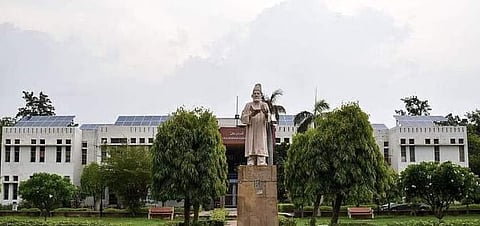

Today, May 22, before the Delhi High Court, Jamia Millia Islamia opposed a public interest litigation (PIL) which sought 10% reservation for students who hail from the economically weaker section (EWS) of society in line with the 2019 amendment to the Constitution. It is not covered under the policy as it is a minority institution, Jamia said, as stated in a report by PTI.
As per an office memorandum back in January 2019 which was issued by the Centre, EWS reservations in central educational institutions does not apply to minority institutions, stated an affidavit which was filed in response to the plea by Jamia.
"It is submitted that EWS reservation will not be applicable in terms of aforesaid office memorandum to the Jamia Millia Islamia," the reply said, which was filed through standing counsel Pritish Sabharwal.
Tracing the issue back to...
In February 2011, the National Commission for Minority Educational Institutions passed an order which declared that Jamia Millia Islamia is a minority institution, Jamia stated. It also mentioned that PILs are being issued and the current petition should be dismissed.
Akanksha Goswami, a law student, had approached the high court before this year, asserting that Jamia needs to reserve seats for EWS students from the academic year 2023-24 in terms of the Constitution (103rd Amendment) Act, 2019 which provides for 10% reservation for them in higher education and government jobs.
It was her contention that was that was Jamia established by an Act of Parliament and therefore, is a central university and not a minority institution. And that University Grants Commission (UGC) had written to all central university registrars, which included Jamia, to implement the EWS quota.
Jamia and a minority institution?
The petitioner has also prayed for setting aside an order passed by the National Commission for Minority Educational Institutions which had declared JMI a minority institution.
The petition has stated that JMI is neither established nor administered by the minority community as it is established by an Act of Parliament. Moreover, it is funded by the Government of India.
It has said there is no provision in the Jamia Millia Islamia Act, 1988 to allow selection of only people from the Muslim community as members of its executive and academic council. Treating a central university as a minority educational institution is repugnant to law, it said.
